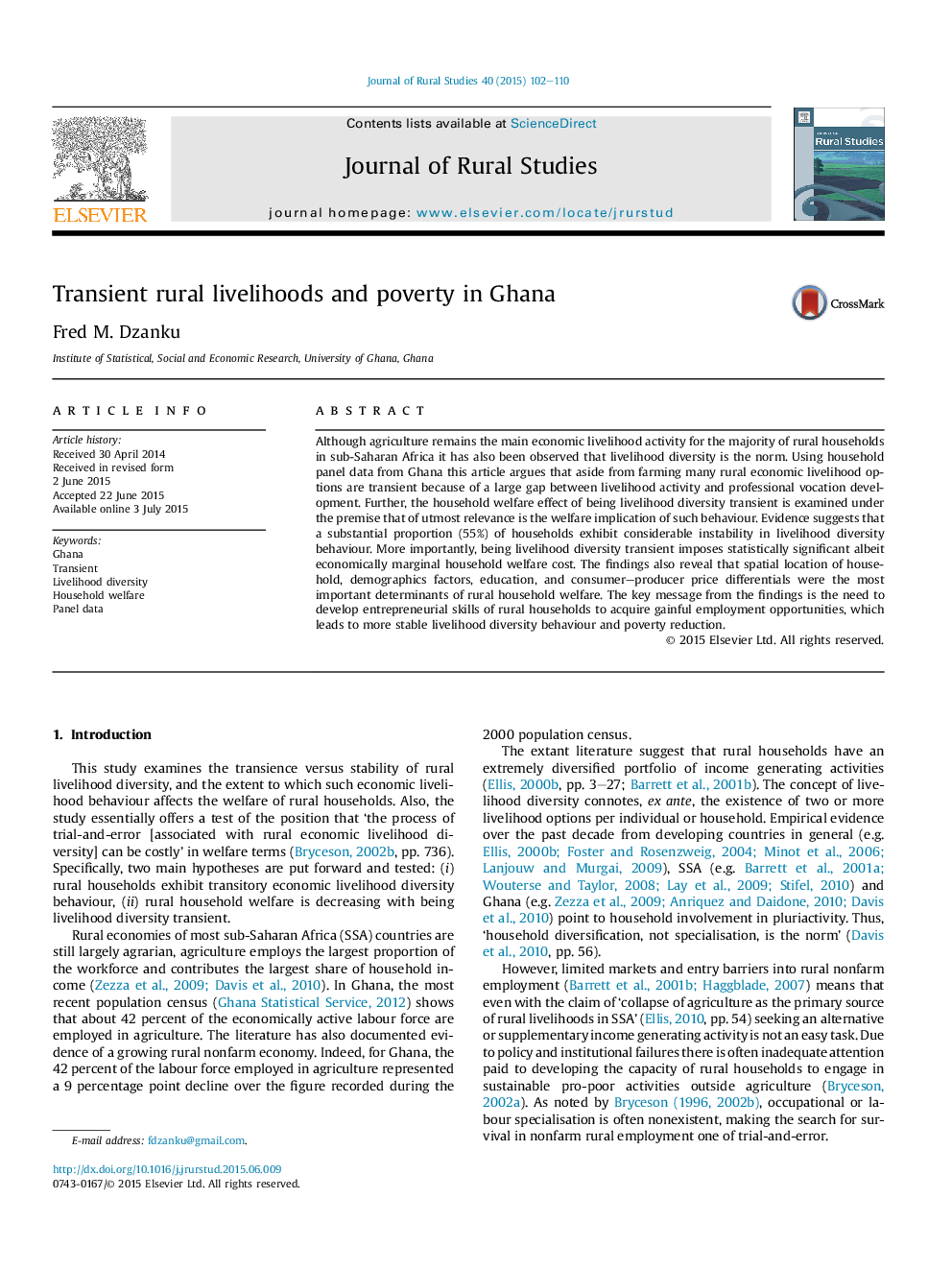| Article ID | Journal | Published Year | Pages | File Type |
|---|---|---|---|---|
| 92452 | Journal of Rural Studies | 2015 | 9 Pages |
•Analysis of household livelihood transience and welfare implications.•Households exhibit instability in economic livelihood diversity.•Being livelihood diversity transient imposes significant welfare cost.•Policy should target developing entrepreneurial skills of rural households.
Although agriculture remains the main economic livelihood activity for the majority of rural households in sub-Saharan Africa it has also been observed that livelihood diversity is the norm. Using household panel data from Ghana this article argues that aside from farming many rural economic livelihood options are transient because of a large gap between livelihood activity and professional vocation development. Further, the household welfare effect of being livelihood diversity transient is examined under the premise that of utmost relevance is the welfare implication of such behaviour. Evidence suggests that a substantial proportion (55%) of households exhibit considerable instability in livelihood diversity behaviour. More importantly, being livelihood diversity transient imposes statistically significant albeit economically marginal household welfare cost. The findings also reveal that spatial location of household, demographics factors, education, and consumer–producer price differentials were the most important determinants of rural household welfare. The key message from the findings is the need to develop entrepreneurial skills of rural households to acquire gainful employment opportunities, which leads to more stable livelihood diversity behaviour and poverty reduction.
